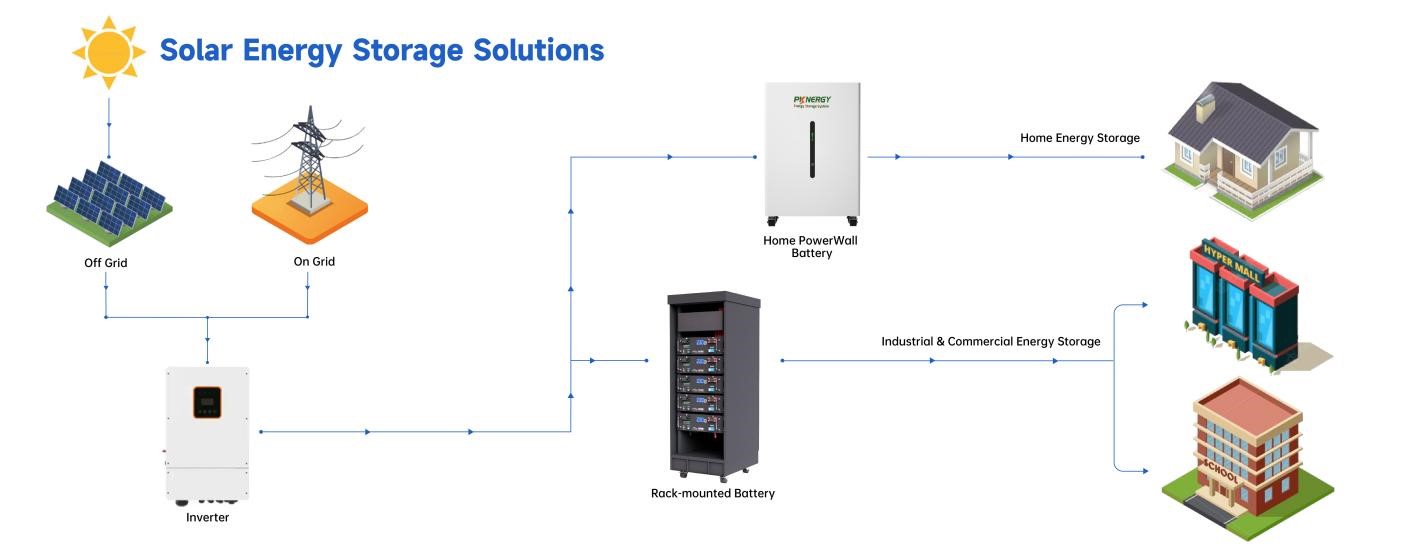In a world ceaselessly in motion, one fundamental requirement stands unshaken: the necessity for unwavering energy provision. Energy storage technology, though it operates in silence, emerges as the unsung hero, the sentinel that ensures the perpetuity of our luminous abodes, the ceaseless operation of our electronic comrades, and the harmonious functioning of our industrial bastions.
The domain of energy storage technology is an ever-burgeoning cosmos, in a perpetual state of evolution. In this age of mounting electronic reliance, the dawn of smarter domiciles, and the advent of more automated industries, the clarion call for energy storage solutions that are efficient, enduring, and ecologically sustainable resonates louder than ever.
The illustrious 48V LiFePO4 Battery or LiFePO4 Server Rack Battery. These avant-garde solutions are not merely participants in the grand game; they are the architects, the visionaries, and the very embodiment of its essence.
Discussing the Potential and Advancements in 48-Volt LifePO4 Battery Technology
Existing Capabilities:
At its core, the Lithium solar batteries are all about power and reliability. It functions as an industrious workhorse, endowed with the capability to provide significant energy across a wide spectrum of applications. Its remarkable efficiency in storing substantial energy makes it an unparalleled choice, particularly in the realm of commercial solar battery storage, where the optimization of every unit of power holds paramount importance.
Potential Unleashed:
Recent advancements have pushed these batteries into new territories. For example, they are becoming integral components of renewable energy systems, ensuring that the electricity generated from sources like solar panels is not only captured but also available when needed.
Recent Advancements:
These batteries can communicate with other devices in a power system, optimizing energy flows and ensuring no watt goes to waste.
In essence, lithium battery packs are no longer just energy storage devices; they are energy management systems, orchestrating the flow of power with precision and reliability.
The future of energy storage lies firmly in the hands of these formidable batteries. They serve as the unsung champions, facilitating the fabric of our modern existence. With every stride in technological progress, they propel us closer to a future defined by sustainability and enhanced energy efficiency. Hence, it’s prudent to monitor this technology closely, for it not only powers the future but also sculpts it.
Trends Shaping the Future of Energy Storage
Higher Energy Density:
Energy density refers to the capacity of a battery to store energy within a specific volume or weight. It’s akin to comparing a compact, fuel-efficient car to a larger, fuel-hungry SUV. Batteries with enhanced energy density possess the ability to store increased energy amounts within the same physical footprint, making them extraordinarily advantageous across various applications, notably within the realm of commercial solar battery storage.
Consider the prospect of possessing a battery characterized by its ability to amass a substantial reservoir of energy within a compact form factor. This translates to an increased energy storage capacity within a confined space, consequently enabling the supply of power to a spectrum encompassing residential structures to vehicles, all while employing batteries of reduced size and weight.
Improved Efficiency:
Efficiency in energy storage refers to how well a battery can convert stored energy back into electricity when needed. Higher efficiency means less energy is lost during the conversion process.
Efficient batteries are not only environmentally friendly but also economically sound. They assure the effective harnessing of stored energy, minimizing inefficiencies, and positioning them as exceptionally well-suited for applications where optimizing each unit of electricity is of paramount importance, as exemplified in solar power systems.
Implications for Various Applications:
These trends have far-reaching implications. For example, in the realm of renewable energy, batteries with higher energy density can store excess energy generated during the day and release it when the sun sets.
Within the automotive sector, augmented energy density leads to extended electric vehicle (EV) ranges and abbreviated charging durations. This renders EVs more feasible and enticing to consumers, expediting the shift towards cleaner and more sustainable transportation.
In essence, higher energy density and improved efficiency are like the turbo boosters of the energy storage world. So, keep an eye on these trends; they are powering tomorrow in more ways than one.
Exploring Innovations in Safety Features, Rapid Charging, and Smart Integration
Safety Advancements:
The paramount concern of safety consistently guides battery technology forward. Ongoing innovations in safety features aim to solidify the reliability and security of LiFePO4 solar batteries. Moreover, advanced Battery Management Systems (BMS) diligently scrutinize real-time battery health, promptly notifying users of any irregularities. Such safety enhancements are of consequence in commercial solar battery storage contexts, frequently characterized by expansive battery banks.
If you are interested you need to checkout this product by Pknergy, their commercial solar battery.
Swift Charging Capabilities:
Envision charging your battery in minutes rather than hours. Recent strides in technology have turned rapid charging from a mere idea into a practical reality, fundamentally reshaping how we view energy storage. The integration of rapid charging capabilities enables users to recharge their batteries swiftly, greatly improving the accessibility and efficiency of energy storage systems.
Especially for businesses, rapid charging becomes a driving force for change. It signifies shorter periods of downtime and the ability to quickly counteract fluctuations in energy demand, effectively minimizing disruptions in operations. In residential domains, rapid charging ensures that backup power remains readily available whenever the need arises.
Seamless Integration with Intelligent Systems:
Undoubtedly, the future of Lithium solar battery technology is smart. These batteries are progressively merging with intelligent systems designed to optimize energy utilization. Smart batteries possess the capability to communicate with solar panels, inverters, and even the grid, ensuring prudent energy allocation.
Addressing Environmental Sustainability and Regulatory Aspects of Battery Technology

Environmental Sustainability:
Battery technology stands as a linchpin in our transition towards a more environmentally sustainable energy ecosystem.
Lithium solar batteries have gained recognition for their eco-friendliness. Their chemical composition is inherently less harmful to the environment compared to some other battery types.
Regulatory Considerations and Compliance:
The development and deployment of battery technology are subject to a myriad of regulations and standards.
For instance, commercial solar battery storage systems must adhere to specific safety standards, especially in commercial settings where larger battery banks are involved. In the same vein, batteries tailored for residential use must align with stringent safety and environmental prerequisites to gain approval for consumer applications.
Furthermore, as the demand for Lithium battery packs surges, regulatory authorities continually fine-tune and adapt standards to tackle evolving challenges and advancements in technology.
In Conclusion
From reshaping the landscape of commercial solar battery storage to elevating the energy efficiency of our homes, these batteries stand as the cornerstone of our evolving energy ecosystem. The potential and progress in this technology are undeniably remarkable. Innovations in safety features, rapid charging capabilities, and intelligent integration are rendering Lithium solar batteries safer, faster, and more adaptable than ever before.
However, our journey doesn’t culminate here. If you’re poised to be a part of this energy revolution, we invite you to explore our array of 48V LiFePO4 Batteries at Pknergy. These cutting-edge solutions are meticulously crafted to cater to your commercial solar battery storage needs with efficiency, sustainability, and reliability at their core.
| WORD COUNT | 1201 |
LINKS AND KEYWORDS
| Pknergy, Pknergy battery, Pknergy commercial solar battery or Pknergy solar battery | https://www.Pknergy.com/48v-100ah-5kwh-wall-mount-lifepo4-battery-home-energy-storage-product/ | commercial solar battery storage – solar battery |
| Pknergy, Pknergy battery, Pknergy LiFePO4 Server Rack Battery or Pknergy 48V LiFePO4 Battery | https://www.Pknergy.com/Pknergy-new-design-51-2v-100ah-5kwh-rack-mounted-lifepo4-battery-with-lcd-screen-product/ | LiFePO4 Server Rack Battery – 48V LiFePO4 Battery |
| Pknergy, Pknergy battery, Pknergy Lithium Battery Pack, Pknergy Lithium Solar Batteries, Lithium Battery Pack, Lithium Solar Batteries or Click here | https://www.Pknergy.com/ | lithium battery pack – lithium solar batteries |









Leave a Review